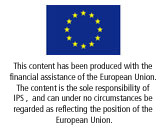Rousbeh Legatis interviews JOAN CLOS, Executive Director of the United Nations Human Settlements Programme (UN-HABITAT)
UNITED NATIONS, Jun 12, 2012 (IPS/TerraViva) – Building the cities of the future requires not only smarter planning but a profound shift toward greater equity and social justice, says Joan Clos, executive director of the U.N. Human Settlements Programme, or UN-HABITAT.
Speaking with U.N. correspondent Rousbeh Legatis on the eve of the Rio+20 U.N. Conference on Sustainable Development, Clos explained how the world’s more than three billion urban dwellers can directly participate in the process of making their cities healthier, more liveable places.
Excerpts from the interview follow.
Q: Can you talk about the link between urban life and development, and to what extent sustainability of the latter depends on the former?
A: With more than half of the global population living in cities, there is no doubt that we live in an urbanised world and the global challenges of the 21st Century are in urban areas.
It is in cities around the world that the pressures of globalisation, migration, social inequality, environmental pollution and climate change and youth unemployment are most directly felt.
On the other hand, they have for centuries been the cradle of innovation and they currently produce more than 75 percent of the world’s GDP. From this point, sustainable urbanisation is a key driver to achieve global sustainable development and economic world growth.
Q: What role does urban design and planning play in this context?
A: With the current worldwide rapid urbanisation, cities need to ensure a good urban design and planning. We must re-embrace the compact, mixed-use city. Cities and their component neighbourhoods need to be compact, integrated and connected.
This requires a shift away from the mono-functional city of low density and long distances, which is poorly connected, socially divided and economically unproductive.
City-dwellers themselves – particularly the poorest and most vulnerable – must remain the primary beneficiaries. The “right to the city” remains a powerful principle for ensuring that the collective interest of a city prevails.
A human rights-based approach is the only way to uphold the dignity of all urban residents in the face of multiple rights violations, including the right to decent living conditions. This paradigm shift cannot take place without addressing the fundamental issues of equity, poverty and social justice.
Q: UN-Habitat is calling for “Sustainable Cities for All”. What would they look like? Do any already exist?
A: Cities in Asia and Europe offer, generally speaking, some of the best models, with Singapore, Tokyo and Osaka and Copenhagen, Stockholm and Oslo leading their counterparts.
Siemens Green City Index, for example, provides a comprehensive, rigorous set of measurement principles for sustainable cities along the parameters of low CO2 emissions and energy use, optimal land use, efficient buildings and transport, recycling of water and waste, and air quality and environmental governance.
According to the index, the best examples in North America are San Francisco, Vancouver and New York; in Latin America, Curitiba and Bogota. In Africa, Cape Town and Durban offered the best models.
Q: Citizens are often excluded from planning and decision-making processes. How can their voices be strengthened?
A: We emphasise the importance of citizen participation and the ability of the local community to involve many actors including citizens and groups, civil society and the private sector. In many cases, citizens do not have the information or lack the mechanism to participate in city decisions.
In this context, UN-Habitat will launch the initiative “I’m a City Changer” in Rio during the Rio+20 conference. This will be a platform to intensify exchange of experiences and examples from cities, and a global partnership for sustainable cities, involving multi-stakeholder participation – cities and local governments, civil society, national governments and the private sector.
In the essence of the “I’m a City Changer” campaign, I encourage you all to advocate for the importance of sound national urban strategies, balanced regional development policies, and strengthened urban economic and legal frameworks.
We all have to start being City Changers, and think about how we can achieve cities that are more sustainable, equitable and prosperous for all.
Q: What would be measurable results from Rio+20 for achieving sustainable urban development and to reinvigorate the urban agenda?
A: I strongly believe that the Rio+20 conference will be crucial to connect all the work by prioritising sustainable urbanisation within a broader development framework towards a new multi-level governance architecture; increasing the number of countries that adopt and implement national urban policies to coordinate different ministerial and sectoral efforts.
Now more than ever, the role of regional and local authorities is crucial to delivering practical results that will defeat poverty, protect the natural environment and improve resilience to potential disasters. Our challenge is to connect the dots, so that advances on one can generate progress on others.
UN-Habitat strongly recommends that countries establish National Urban Strategies that shape regional and local level development policies and connect the work at local levels to national policies that aim to ensure that urbanisation contributes to economic growth. As part of this process we also recommend the strengthening of the capacity of local and regional authorities to empower them to implement the plans.
Furthermore, a structurally and qualitatively different type of economic growth is needed. Incentives should direct growth towards more resource-productive, resilient, low-carbon and low risk urban infrastructure, and renewed urban design with a focus on the green economy.



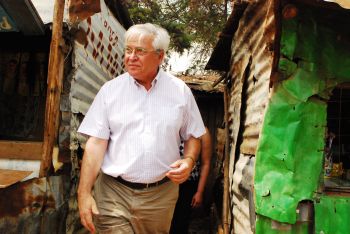
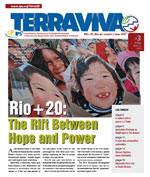
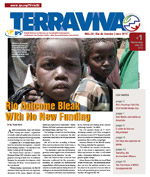
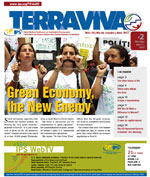

 Add to Google
Add to Google




